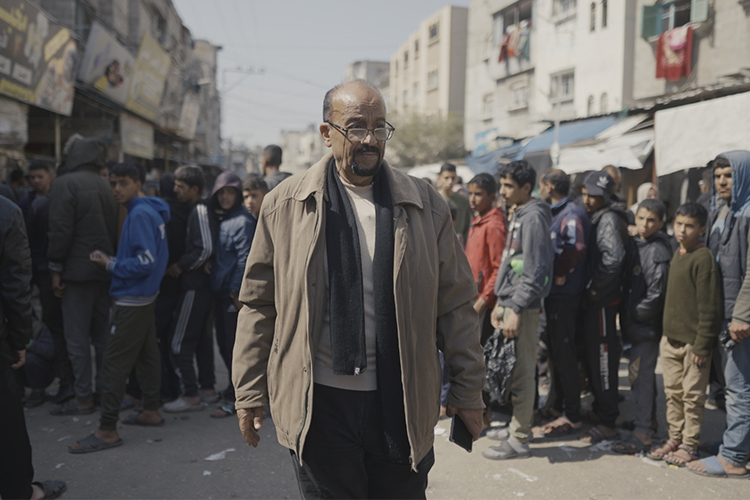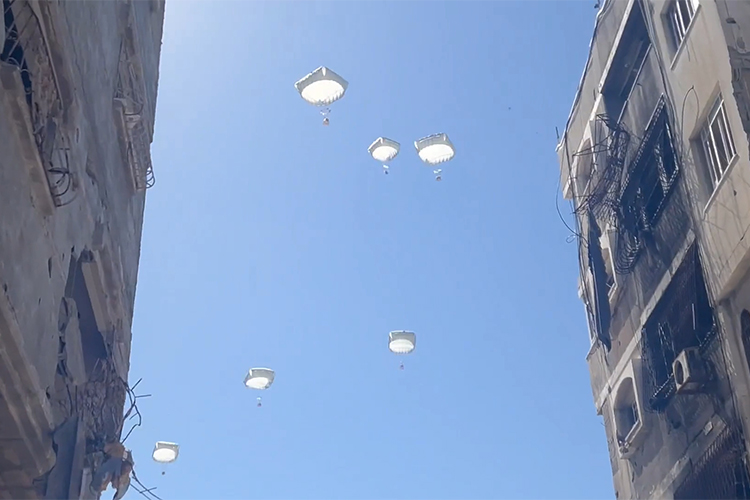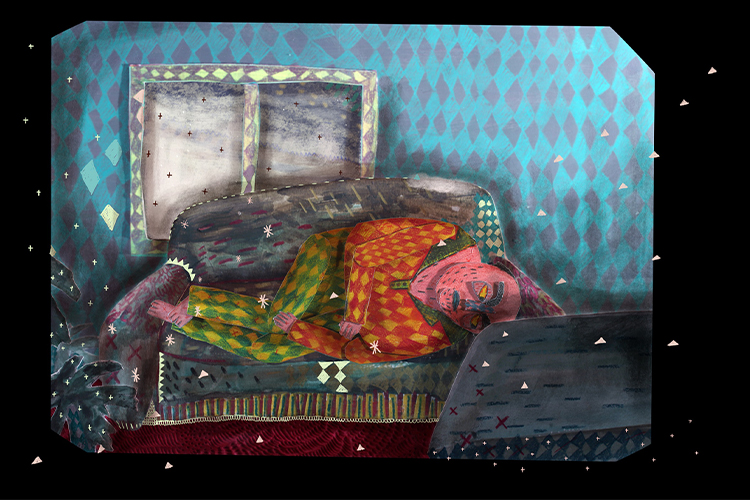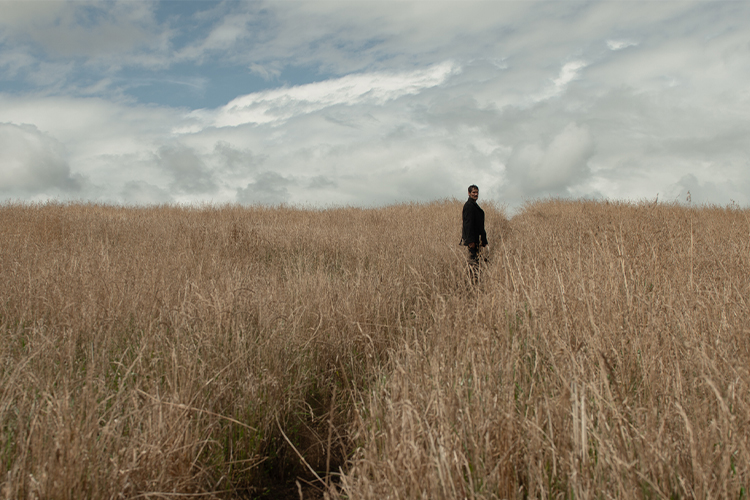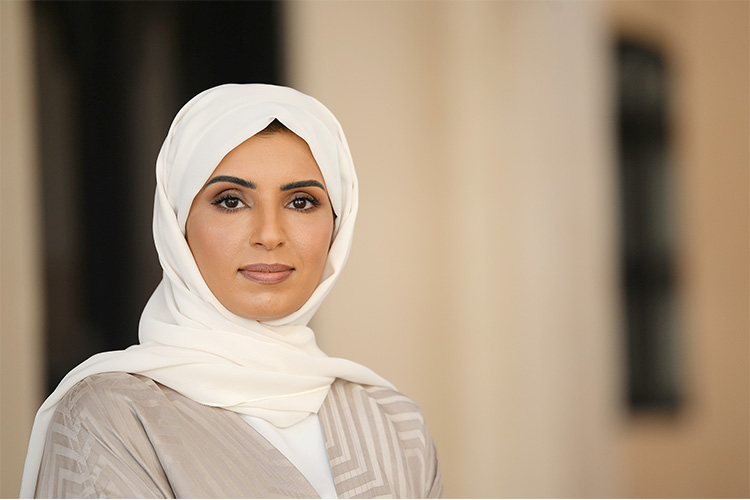The Doha Film Institute reaffirmed its dedication to fostering emerging voices in global cinema today at the Cannes Film Festival 2024, unveiling the recipients of its 2024 Spring Grants cycle. A total of 44 films from 17 countries have been chosen for this round of the Middle East region’s enduring film development program, which has backed over 850 diverse projects from 75 countries to date.
Awarded in two cycles—Spring and Fall—the Institute Grants programme is the region’s longest-serving film support initiative that identifies and nurtures first-and second-time filmmakers globally. Seeking out and promoting original voices, the programme aims to develop a community of filmmakers among the Institute’s alumni and encourage creative interaction among artists worldwide. To date, more than 850 film projects from 75 countries have benefited from the programme that supports feature and short narratives, documentaries, essays and experimentals, as well as TV and web series.
In addition to Qatar, recipients of the 2024 Spring Grants include film projects from Algeria, China, Colombia, Egypt, Indonesia, Iran, Iraq, Jordan, Lebanon, Morocco, Palestine, Syria, Tunisia along with first-time grantees from Malta, South Korea and Tajikistan.
Recipients include 25 women filmmakers and 14 returning grantees, along with six projects from Qatar-based talent, underlining the Institute’s commitment to supporting important voices and the continued evolution of independent cinema from the region and beyond.
Fatma Hassan Alremaihi, Chief Executive Officer of the Doha Film Institute, said: “The founding objective of our Grants programme is to build a new collective of authentic voices who bring diversity and depth to the medium of cinema and encourage cross-cultural exchange and dialogue. Our aim is to identify new talent, amplify globally resonant stories and develop a robust ecosystem that nurtures powerful and moving storytelling to help emerging filmmakers realise their creative aspirations.”
“We are proud to present a new slate of captivating projects from across the region and beyond chosen for their innovative filmmaking techniques, reiterating our commitment to nurturing original and independent voices in world cinema. We are particularly excited of the notable presence of female talent, who represent the bold new energy of filmmaking in the Arab world.” She added.
The 2024 Spring Grants recipients are:
MENA – Feature Narrative – Development
Al-Dana (Qatar) by Nora Al-Subai tells the story of a woman in a man's world who embarks on a Pearl Diving adventure to reclaim her freedom, find the famous black pearl, and heal old wounds.
Running With Beasts (Lebanon, Czech Republic, Qatar) by Leila Basma. Amid Lebanon's economic collapse, five friends come up with a risky secret plan to chase their dreams, confronting the unexpected costs of growing up.
MENA – Feature Narrative – Production
Marie and Jolie (Tunisia, France, Qatar) by Erige Sehiri is the tale of three Ivorian women who rescue a child from the desert to form a complex blended family amidst a country in crisis.
Sound of Silence (Lebanon, France, Greece, UK, Qatar) by Joyce A. Nashawati. Set in 1972, when Greece was under military rule, Alice and Cristina, caught in a police raid on their hippie camp, seek refuge in a monastery, only to discover it harbours a deadly cult led by a ruthless Abbess.
MENA – Feature Narrative – Post-Production
To a Land Unknown (Palestine, UK, Greece, Netherlands, France, Germany, Qatar) by Mahdi Fleifel tells the story of the desperate attempts of two Palestinian cousins stranded in Athens to find a way out of their hopeless environment before it is too late.
Yunan (Syria, Germany, Canada, Italy, Jordan, Palestine, Saudi Arabia, Qatar) by Ameer Fakher Eldin. Haunted by vivid dreams and tormented by inner demons, an Arab author embarks on a journey to a remote German island driven by a desire to end his life.
The Settlement (Egypt, France, Germany, Qatar) by Mohamed Rashad tells the story of a factory worker, Sayed el-Deeb, who dies on the job in present-day Alexandria. When his two sons became labourers in the same factory, the workers become suspicious that they are there to avenge his death.
Nomadish (Morocco, Hungary, Qatar) by Yassine Marco Marroccu. In Casablanca, 1961, Edoardo embarks on a covert and illegal mission to rescue a wrecked ship on the shores of the Atlantic.
Agora (Tunisia, France, Saudi Arabia, Qatar) by Ala Eddine Slim. In a faraway town, missing people return under inexplicable circumstances—when an investigation is launched, things get complicated.
Non-MENA – Feature Narrative – Post-Production
A>>ejtune (Malta, Germany, Qatar) by Alex Camilleri. Mar is determined to claim her family inheritance and leave the small island of Malta behind for good. But an encounter with Nenu, an elderly troubadour, tempts her to rediscover the country she aims to escape.
The Botanist (China, Qatar) by Jing Yi is set in the village valleys of northern Xinjiang, where a Kazakh boy obsessed with plants gradually dwells into the dreamy fable of botany as he reminisces about the time that has passed.
Another Birth (Tajikistan, USA, Germany, Qatar) by Isabelle Kalandar. Eight-year-old Parastu sets out on an imaginative-driven quest to find her long-lost father to save her beloved and grief-stricken grandfather from dying of longing for his absent son.
Horizon (Colombia, France, Luxembourg, Chili, Qatar) by César Augusto Acevedo. Separated in life due to violence, Basilio and his mother Inés understand that their reunion is only because they are now dead. They decide to set out in search of the father through a landscape completely devastated by war.
Tale Of The Land (Indonesia, The Philippines, Qatar) by Loeloe Hendra follows a victim of land conflict as she tries to get her life back on a floating house in the middle of the water.
The Fin (South Korea, Germany, Qatar) by Syeyoung Park. In a reunified Korea devastated by an ecological catastrophe, an oppressed mutant Omega fights to fulfil a dying wish, whilst an ardent government worker begins to doubt the state’s ideologies.
MENA – Feature Documentary – Experimental/Essay – Development
Flying Elephants (Lebanon, France, Qatar) by Mona Khaouli is a documentary about 64-year-old Lebanese musician, Munir Khauli, whose niece reveals a singular character and a unique, quirky vision of Lebanon through his music.
Just Like a Dream (Lebanon, Qatar) by Corine Shawi explores how the Beirut port explosion and the everlasting political turmoil have shaped Lebanon’s collective psyche.
Road Trip (Morocco, France, Qatar) by Linda Qibaa follows Linda, who reunites with her father Khammar in his car garage after 30 years apart. Together, they set off for Morocco, the family's country of origin, via Spain—where Khammar had been imprisoned.
Speak Image, Speak (Palestine, Germany, Qatar) by Pary El-Qalqili, sets out to narrate a disobedient cinematic counter-memory of Palestinian history in Germany.
MENA – Feature Documentary – Production
Flower of the Sands (Morocco, Qatar) by Jaouad Babili follows a woman who runs a café in a fishing village—challenging circumstances in a predominantly male-dominated environment.
Climbing the Mountains (Algeria, France, Germany, Qatar) by Sabrina Chebbi investigates what might happen if trauma is passed on silently from generation to generation.
MENA – Feature Documentary – Post-Production
She Was Not Alone (Iraq, Saudi Arabia, USA, Qatar) by Hussein Al-Asadi chronicles the life of Fatima, a resilient nomadic woman in the disappearing Iraqi marshes amidst the threats of climate change.
Top of Form
Those Who Watch Over (Morocco, Belgium, Qatar) by Karima Saidi explores how Muslims, Jews, Orthodox and outsiders are buried together in a unique place where care is taken to respect plurality, both for the dead and the living.
Ground Zero (Palestine, Qatar) a collective shorts project with 22 directors from Gaza preserves the scarcely heard voices, experiences and memories of artistic talents from the Gaza Strip.
Moondove (Lebanon, Netherlands, Qatar) by Karim Kassem, moves between three stories in a village in Lebanon, exploring inner worlds and psychological landscapes, as the phases of the moon cycle on.
Non-MENA – Feature Documentary – Post-Production
Cutting Through Rocks (Iran, Germany, Qatar) by Sara Khaki and Mohammad Reza Eyni is a feature-length documentary in production and is expected to be finished in 2024.
Requiem for a Tribe (Iran, Spain, Qatar) by Marjan Khosravi documents the life of Hajar, a 55-year-old Bahktiari grandma who is betrayed by her family and forced to abandon her nomadic lifestyle.
MENA – TV Series – Development
Badr on the Moon (Qatar, Jordan) by Aisha Al-Jaidah and Kholoud Al Ali is about a boy and his robot sidekick who live on the lunar surface and learn all about recycling, energy saving, new technology, and more.
Last Words (Lebanon, Canada, Qatar) by Antoine Waked, depicts a woman with newfound powers to hear the final thoughts of the dead who must use them to survive and protect her immigrant community in Canada from a killer.
Palmyra (Lebanon, France, Qatar) by Carol Mezher and Gabriela Flores. Upon the brutal murder of Palmyra’s head of antiquities, three women are reunited as the sole inheritors of precious artefacts he smuggled from the ancient Syrian city.
Rent-a-Mama (Lebanon, Canada, Qatar) by Dania Bdeir tells the story of a traditional Lebanese supermom and housewife, who is living in New York and decides to sign up on an app to become a mother-for-hire to liberal Gen Zers.
The Dry Kingdom (Jordan, USA, Qatar) by Dana J. Atrach. Amid a global water crisis, the rebellious daughter of a missing scientist must find her father and his groundbreaking discovery before it falls into the wrong hands.
Echoes (Lebanon, Qatar) by Marie-Rose Osta is a collection of selected stories from the Arab world, where the tales of six women from different countries intersect with the spirits of women from the past.
MENA – Web Series – Production
El'Sardines (Algeria, France, Qatar) by Zoulikha Tahar. An Algerian marine bioengineer navigates the chaos of her sister's wedding preparations while keeping her impending departure for a sardine-run expedition a secret.
MENA – Shorts – Narrative – Development
Before the Day Breaks (Qatar) by Amal Al-Muftah tells the story of Nour, a young truck driver, who encounters obstacles while delivering an urgent, unusual shipment to Qatar.
If Only (Qatar) by Ali Al Anssari portrays Hamda, who thirty-five years after her separation from her parents, takes a leap back in time to save their lives, only to find out the hidden truth about their untimely departure.
MENA – Shorts – Narrative – Production
Little Man (Morocco, France, Qatar) by Hajri Gachouch unfolds the story of a man who persists in carrying out his mysterious project in a drought-stricken village in the Sahara.
Salted Skins (Lebanon, France, Canada, Qatar) by Nicolas Fattouh depicts Nabil who begins to lose his space in his childhood home, gradually being occupied by the family of his elder brother.
The Heaviness of Absence (Syria, Germany, Qatar) by Jalal Maghout. In the midst of war-torn Damascus, a distressed young man tries to discover the fate of his arrested father.
Zizou (Egypt, Qatar) by Khaled Moeit is about a 13-year-old overweight boy's struggle to join the neighbourhood's football team as a way to prove himself.
Eman (Qatar) by Maha Al-Thani. Raised in a strict household, an adolescent girl’s immense desire to go out leads her to an alternative universe which might prove to be worse than her reality.
Please Pause (Qatar) by Lulwa Al-Thani follows a boy navigating the challenges of growing up who, while seeking comfort in reminiscence and nostalgia, confronts a surprising truth about his age during a chance encounter with a police officer.
MENA – Shorts Documentary – Production
The Star (Lebanon, Qatar) by Ingrid El Zoghby is the transformative journey of a cancer survivor who discovers how her health problems might be linked to her past traumas.
Another Day Shall Come (Palestine, Qatar) by Aida Kaadan is an audio-visual portrait of silenced Palestinians living in Israel during the war on Gaza.



